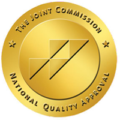Heroin addiction is a serious problem that needs effective treatment to address the disease’s physical, psychological, and social aspects. Outpatient treatment is becoming more popular as a convenient and practical way to treat heroin addiction in Los Angeles, CA. It gives people comprehensive care while caring for their daily responsibilities and support systems. Outpatient treatment allows individuals to receive the help they need to overcome addiction while continuing to live.
Outpatient treatment is a structured program that lets people receive therapy, counseling, and medication-assisted treatment (MAT) without living at a treatment facility. It’s a flexible and convenient option for those who can’t stay in a facility due to work, family, or other responsibilities. With outpatient treatment, people can get the necessary help while caring for their obligations.
Benefits of Heroin Outpatient Treatment in Los Angeles, CA
There are several benefits to outpatient treatment. First, it offers flexibility and convenience, allowing people to schedule treatment sessions based on their availability. This makes it easier to keep working, fulfill family duties, and stay involved in social activities. Second, outpatient treatment allows people to maintain their support systems. By staying connected to family, friends, and community networks, they have a stronger foundation for recovery. Lastly, outpatient treatment provides ongoing care. By integrating treatment into everyday life, people can smoothly transition from active treatment to aftercare services, ensuring ongoing support for long-term recovery.
In Los Angeles, CA, outpatient treatment has several stages. It starts with an assessment to evaluate needs and create a personalized plan. Therapy and counseling sessions follow to address addiction causes and develop coping strategies. Medication may be given for withdrawal symptoms. Aftercare services are available for ongoing support.
Choosing the right outpatient facility is important for successful recovery. Consider licensing and accreditation to meet regulations. The expertise and experience of the treatment team matter for effective and caring treatment. Check the services offered to see if individual needs are met. Also, explore insurance coverage and payment options for affordability and accessibility.
The Need for Heroin Treatment
Heroin treatment is crucial for addressing the devastating impact of addiction. It provides specialized care and support to overcome addiction, improve health, prevent relapse, and reintegrate individuals into society. Choosing a reputable treatment center is essential for finding the right support. Recovery is possible with the right commitment and support.
Understanding Outpatient Treatment
Outpatient treatment is convenient for individuals seeking heroin treatment in Los Angeles, CA. Understanding outpatient treatment is essential to make an informed decision.
- Flexibility: Outpatient treatment provides the flexibility to receive treatment while maintaining daily responsibilities. Patients can attend therapy sessions, counseling, and support groups during convenient hours by understanding outpatient treatment.
- Individualized Care: Understanding outpatient treatment offers personalized care tailored to each patient’s needs. Treatment plans are developed to assess the individual’s substance abuse history, mental health, and other relevant factors.
- Comprehensive Services: Understanding outpatient treatment programs typically offer services to support individuals in recovery. These may include individual therapy, group therapy, family therapy, medication management, and relapse prevention strategies.
- Relapse Prevention: Understanding outpatient treatment focuses on equipping individuals with the tools and coping strategies necessary to prevent relapse. Patients learn to identify triggers and develop healthy coping mechanisms through therapy and counseling.
- Ongoing Support: Understanding outpatient treatment provides ongoing support after completing the program. Continuing care and aftercare services are available to support individuals in maintaining their sobriety and preventing relapse.
- Community Connection: Understanding outpatient treatment allows individuals to connect with a community of peers who are also going through similar experiences. This community provides support and encouragement throughout recovery.
If you’re looking for heroin treatment in Los Angeles, CA, it’s important to understand outpatient treatment. It gives you flexibility, personalized care, a wide range of services, strategies to prevent relapse, ongoing support, and a sense of community. Knowing these things will help you make a knowledgeable choice about your treatment.
What is Outpatient Treatment?
Outpatient treatment is convenient and effective for treating heroin addiction. Instead of staying overnight, individuals can receive treatment while continuing their daily lives. It includes therapy, counseling, medication-assisted treatment, and support services.
During outpatient treatment, therapy and counseling sessions focus on individual needs, addressing addiction causes, and developing relapse prevention strategies. Medications can help manage withdrawal symptoms and cravings.
Outpatient treatment offers flexibility and convenience, allowing individuals to schedule sessions around their responsibilities. It also maintains their social support system, which is vital for recovery, keeping them motivated and accountable. Continuity of care is important in outpatient treatment. It helps people transition back to daily life with support and resources.
When choosing an outpatient center, consider licensing, accreditation, staff expertise, available services, and insurance coverage. These factors ensure good care and resources for recovery. Outpatient treatment is convenient and effective for heroin addiction. It allows people to get the care they need while fulfilling responsibilities. Therapy, counseling, medication-assisted treatment, and aftercare services help achieve long-term recovery.
How does Outpatient Treatment Work?
Outpatient treatment is important for helping people with heroin addiction. It lets them get the care they need while still caring for their daily responsibilities. Here’s how outpatient treatment works:
- Assessment: The first step is to assess the person’s addiction history, medical condition, and personal situation. This helps the treatment team create a plan specifically for the person.
- Personalized Treatment Plan: Based on the assessment, a plan is made. This plan includes the specific treatments and therapies to help people with unique needs and goals.
- Therapy and Counseling: Outpatient treatment involves regular therapy and counseling sessions. Qualified professionals help the person explore the reasons behind their addiction, develop coping strategies, and learn healthier ways to handle stress and emotions.
- Medication-Assisted Treatment (MAT): Sometimes, medications like methadone or buprenorphine are prescribed to help manage withdrawal symptoms and cravings. This allows the person to focus on their recovery.
- Support and Aftercare: Outpatient treatment also provides ongoing support and aftercare. This can include support groups, strategies to prevent relapse and help create a stable and supportive environment.
Outpatient treatment in Los Angeles, CA, offers a flexible and convenient way for people to get treatment for heroin addiction while still fulfilling their daily obligations. It helps them not only improve their well-being but also become better at managing their recovery journey.
The Benefits of Outpatient Treatment
With outpatient treatment for heroin addiction in Los Angeles, CA, the benefits are immense. Discover the freedom and adaptability of flexible treatment schedules. Uncover the power of a supportive community that stands by your side throughout your recovery journey. Experience the seamless transition from different phases of care, ensuring a holistic and uninterrupted healing process. Outpatient treatment is the game-changer you’ve been searching for.
Flexibility and Convenience
Outpatient treatment for heroin addiction is a flexible and convenient approach that helps people in recovery. Here are some important points about the flexibility and convenience of outpatient treatment:
- Treatment Schedule: Outpatient treatment lets individuals choose the times for therapy and counseling sessions. This is especially helpful for those with work, family, or other commitments that can’t easily be interrupted.
- Location: Outpatient treatment centers are conveniently located in the community, making getting treatment easier without traveling far. This means they don’t have to stay overnight and can continue their daily routines while getting the necessary treatment.
- Family Involvement: Outpatient treatment programs strongly encourage involving the family in therapy sessions. This provides support from loved ones and helps maintain important relationships during recovery. Family involvement improves treatment outcomes and creates a strong support system.
- Continued Independence: Outpatient treatment allows individuals to live independently while getting the support they need for recovery. This is especially appealing to those who value personal freedom and privacy.
- Gradual Transition: Outpatient treatment provides a gradual transition from a structured environment, such as residential treatment, back to everyday life. This lets individuals practice coping skills and strategies learned during treatment in real-life situations, increasing their chances of long-term success.
By offering flexibility and convenience, outpatient treatment empowers individuals to participate in their recovery while managing their daily responsibilities actively. This approach recognizes that each person’s path to recovery is unique and strives to meet their needs.
Maintaining Social Support
Maintaining social support is crucial for outpatient treatment of heroin addiction. It’s important for the recovery and well-being. Engage with supportive family, friends, and peers. They offer encouragement, understanding, and guidance. Group therapy lets you connect with others facing similar challenges, providing a safe space to share experiences and support each other. Community resources like support groups or 12-step programs offer belonging and interaction with those who overcame addiction. Openly communicate needs and challenges with your support network. Celebrating milestones and progress boosts motivation and strengthens bonds. Addiction counselors and therapists provide expertise, coping mechanisms, and healthy communication strategies.
Continuity of Care
Continuity of care is essential in outpatient treatment for heroin addiction. It ensures consistent support throughout recovery. At an outpatient facility, continuity of care is maintained through key practices. Regular follow-up appointments monitor progress and adjust treatment plans. Therapy and counseling sessions provide ongoing emotional support and guidance.
Medication-assisted treatment is crucial, using medications to manage withdrawal symptoms and cravings. Support and aftercare services help individuals reintegrate into everyday life. Outpatient treatment delivers ongoing care and support, providing necessary resources for long-term recovery. Continuity of care is vital for positive outcomes and preventing relapse.
The Outpatient Treatment Process in Los Angeles, CA
For treating heroin addiction, outpatient treatment in Los Angeles, CA, is the best option because it is convenient and effective. It includes assessment, intake, treatment plans, therapy and counseling sessions, medication-assisted treatment, and ongoing support and aftercare services.
Initial Assessment and Intake
.jpg)
The first step in outpatient treatment for heroin addiction is the initial assessment and intake process. This involves evaluating the individual’s medical and mental health history, and substance abuse history and conducting a physical examination. A mental health assessment is also conducted to identify any underlying psychological conditions. Based on the assessment, a personalized treatment plan is created, considering the individual’s needs, goals, and preferences. This process is crucial for ensuring individuals receive the right treatment for their addiction and can achieve lasting recovery.
Individualized Treatment Plan
The treatment plan for heroin addiction is personalized for each individual. It starts with assessing their addiction history, health, and related disorders. Based on this assessment, a plan is created with therapies, counseling, and medication if needed. The plan is regularly reviewed and adjusted to meet the person’s changing needs. The goal is to address the causes of addiction, develop coping skills, and facilitate personal growth using proven techniques like therapy. Personalized treatment improves effectiveness and promotes long-term recovery while involving the individual in their care.
Therapy and Counseling Sessions
The therapy and counseling sessions in outpatient treatment are crucial to the recovery process. These sessions provide individuals with the necessary support, guidance, and tools to overcome heroin addiction and maintain long-term sobriety.
- Individual therapy sessions: In these sessions, people can explore and address addiction issues, triggers, and emotions. Therapy and counseling help them build coping strategies, improve problem-solving skills, and enhance well-being.
- Group therapy sessions: Group therapy provides support and connection among individuals going through similar experiences. It fosters a sense of community, validation, and encouragement. Members can share stories, insights, and emotional support during therapy sessions.
- Family therapy sessions: Family involvement is crucial for recovery. Therapy and counseling sessions repair relationships and teach loved ones about addiction. They enable open communication, understanding, and healthy coping mechanisms for everyone involved.
- Cognitive-behavioral therapy (CBT): CBT helps identify and change negative thoughts and behaviors linked to addiction. Therapy and counseling can develop better coping methods, improve problem-solving, and stop relapse.
- Contingency management: This method supports people overcoming addiction by rewarding important milestones like passing drug tests or attending therapy. Incentives such as vouchers, prizes, or special privileges encourage dedication to recovery.
To benefit from therapy, be engaged, honest, and committed. Sessions’ duration and frequency vary based on needs and plans.
Medication-Assisted Treatment
Medication-Assisted Treatment (MAT) is a highly effective approach for treating heroin addiction. It combines medications, counseling, and behavioral therapies to provide personalized and comprehensive care. MAT reduces withdrawal symptoms, cravings, and the risk of relapse, while also addressing the underlying causes of addiction. Backed by research, it has improved treatment outcomes and offers hope for recovery.
Support and Aftercare Services
In Los Angeles, CA, support and aftercare services are an integral part of the outpatient treatment process for individuals dealing with heroin addiction.
- Ongoing Support: After treatment, people get ongoing support like counseling, therapy, and group sessions to help them recover.
- Relapse Prevention: Support services help prevent relapse. They teach people how to handle triggers and cravings, reducing the risk of relapse. This involves learning healthy coping skills, making a prevention plan, and finding supportive resources.
- Case Management: Aftercare services include case management to connect individuals with necessary resources and services in the community. Case managers help access healthcare, housing, employment, and other support services for successful recovery.
- Family Involvement: Support services can include family therapy and education programs, which help improve communication and create a healthier environment for the person in recovery.
- Continuing Education and Skill-building: Support and aftercare help individuals build a strong foundation for their future. They provide vocational training and education and help with resumes and job placement, promoting stability and self-sufficiency.
Choosing the Right Outpatient Treatment Facility
In the quest to find the most suitable outpatient treatment facility for heroin addiction in Los Angeles, CA, one crucial step is to choose the right center. This involves considering various factors, such as licensing and accreditation, expertise and experience, range of services offered, and insurance coverage and payment options. By exploring these sub-sections, we’ll discover key insights that will guide individuals in making informed decisions about their recovery journey. So, let’s dive in and find the perfect outpatient treatment facility to embark on a healthier future.
Licensing and Accreditation
When seeking outpatient treatment for heroin addiction, it’s crucial to choose a licensed and accredited facility. This ensures adherence to quality standards, evidence-based care, and a safe recovery environment. In Los Angeles, CA, licensed and accredited outpatient facilities provide top-notch care. Prioritize your health and make an informed decision by inquiring about licensing and accreditation.
Expertise and Experience
When choosing a treatment facility for heroin addiction, consider the staff’s expertise and experience. Look for a facility that specializes in heroin addiction treatment and has trained professionals like counselors, therapists, doctors, nurses, and support staff with addiction treatment experience. The facility should offer evidence-based treatments like individual therapy, group therapy, medication-assisted treatment, and holistic therapies. Choose a facility skilled in these approaches.
Specialized addiction treatment facilities understand the challenges faced by individuals struggling with heroin addiction. Select one focusing on addiction, particularly heroin addiction, for targeted and effective treatment. To assess effectiveness, check the facility’s track record in helping people recover from heroin addiction. Research outcomes, read reviews, and speak to former patients if possible. Facilities with addiction treatment expertise are likelier to have a successful track record.
Range of Services Offered
When considering outpatient treatment for heroin addiction, it is important to assess the range of services offered by different treatment facilities. These services include:
- Individual Therapy – One-on-one counseling sessions with a trained therapist.
- Group Therapy – Therapeutic sessions are conducted in a group setting, allowing individuals to connect and support each other in their recovery journeys.
- Medication-Assisted Treatment – The use of medications such as methadone or buprenorphine, combined with counseling and behavioral therapies, to address withdrawal symptoms and cravings.
- Family Therapy – Involving family members in the treatment process to enhance communication, understanding, and support for the individual in recovery.
- Holistic Therapies – Alternative approaches, such as yoga, meditation, surf therapy, and acupuncture, can help to promote physical, mental, and emotional well-being.
- Relapse Prevention – Developing strategies and skills to identify triggers, cope with cravings, and prevent relapse.
- Aftercare Services – Continued support and guidance after completing the outpatient program, which may include ongoing therapy, support groups, and access to community resources.
By considering the range of services offered by different outpatient treatment facilities, individuals can choose a program that aligns with their specific needs and goals for recovery.
Insurance Coverage and Payment Options
When considering outpatient treatment for heroin addiction, it is crucial to consider the insurance coverage and payment options available. Here are some essential factors to consider:
- Insurance coverage: Check if the outpatient treatment place takes your insurance. Call your insurance company to know exactly what addiction treatment services they cover. This will help you determine if you need to pay anything and if there are any limits or rules to follow.
- In-network vs. out-of-network: If you have insurance, determine if the facility is in-network or out-of-network. An in-network provider can result in lower out-of-pocket costs for you. An out-of-network provider may offer higher levels of care, training, or certifications.
- Prior authorization: Depending on your insurance, it’s important to check if you need prior authorization for outpatient treatment. This typically involves submitting necessary documents or getting your insurance company’s approval to ensure you’re covered.
- Payment options: When looking for treatment, ask about different pay methods. Some places may let you pay in installments or adjust the fee based on your income. They might also accept Medicaid or have scholarships or grants for people who can’t afford the full cost of treatment.








